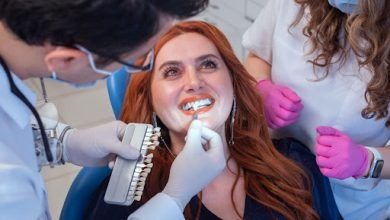How often Should a Patient Schedule Dental Appointments?
Timely dental care from a dentist in Sydney CBD remains the best way for patients to avoid the undesirable consequences of tooth decay, missing teeth and periodontal disease among numerous other dental conditions. According to the Australian Institute of Health and Welfare 70 000 Australians from the age of 15 years and older had to be hospitalised due to dental problems that could otherwise have been prevented if caught in time.
Oral health – defined as the optimal state of a patient’s mouth structures (teeth, gums, muscles and bones) – has a huge influence on physical and psychological well being. This important fact needs to be properly understood in order for patients to take the necessary step to take care of their dental health.
Dental conditions like gum disease and the appearance of cavities do not resolve themselves, rather the opposite; these worsen over time without professional dental treatments. The end result may include pain and discomfort, lengthy and costly treatments and the psychosocial impacts of a less-than-attractive smile due to missing teeth.
In-clinic dental appointments reduce the likelihood of a patient’s need for fillings or root canals or tooth extractions. These preventive care visits are more likely to promote a patient’s satisfaction with the appearance of their smiles. Aesthetically-pleasing smiles are widely associated with positive self-esteem and confidence.
How to determine frequency of dental visits
Patients know that check-ups at a dental clinic are important but are often confused as to when and how often to schedule these appointments. For the most part, this really depends on the individual patient’s oral and overall health.
- Annual visits
On average, a patient with a typically healthy mouth can get away with a yearly check-up to continue enjoying peace of mind that all is well.
- More frequent visits
A shorter length between visits is required for the following patients:
- Those with a higher risk of poor dental conditions
Certain dental problems need strict and constant monitoring by a dental professional to ensure they are treated with measures that prevent them from progressing to advanced stages.
Calculus – a form of stubborn plaque that is responsible for the formation of cavities is difficult for a patient to get rid of on their own. Professional in-chair cleanings remain the most reliable way of removing this substance from teeth.
- Patients with a pre-existing medical condition
Gum disease and plaque filtering down into the body are two main concerns for patients who suffer from medical conditions such as diabetes and various cardiovascular disorders. Dry mouth is another condition that will adversely impact dental health. Saliva is incredibly useful in removing bacteria from the mouth and protecting the mouth from acids consumed from foods and beverages.
- Patients with poor lifestyle and dietary habits
Lifestyle habits such as smoking and eating habits that comprise of consuming excessive sugar are well-known for resulting in poor oral health. If a patient knows that their eating habits leave a lot to be desired or who neglect their oral hygiene routine will find that they may need to see a dental professional more often.
Contact Spa Dental Sydney CBD to arrange a check-up or clean performed by an experienced and qualified dentist.
Any surgical or invasive procedure carries risks. Before proceeding you should seek a second opinion from an appropriately qualified health practitioner.




